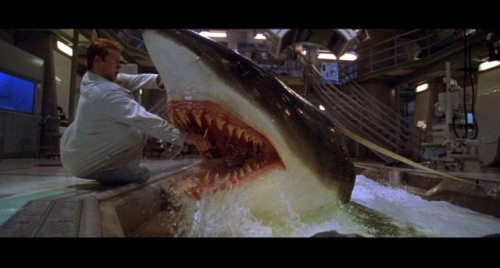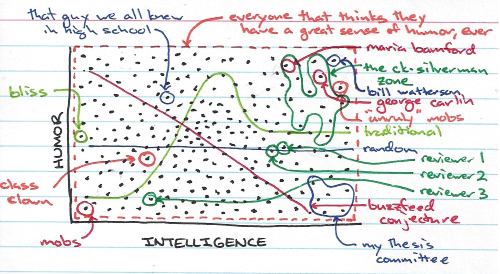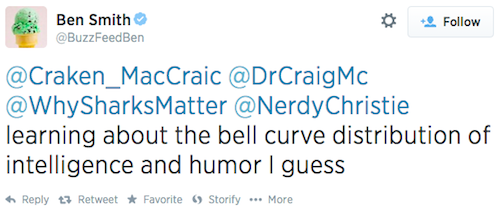 0000-0001-7794-0218 The first fossils of a giant ancestor of the great white shark have been discovered in Victoria, Australia. Philip Mullaly, a fossil enthusiast, was having a stroll down the beach at Victoria’s popular surf
0000-0001-7794-0218 The first fossils of a giant ancestor of the great white shark have been discovered in Victoria, Australia. Philip Mullaly, a fossil enthusiast, was having a stroll down the beach at Victoria’s popular surfCategory Archives: sharks
Crikey! We’re gonna need a bigger boat…
 0000-0001-7794-0218 The first fossils of a giant ancestor of the great white shark have been discovered in Victoria, Australia. Philip Mullaly, a fossil enthusiast, was having a stroll down the beach at Victoria’s popular surf
0000-0001-7794-0218 The first fossils of a giant ancestor of the great white shark have been discovered in Victoria, Australia. Philip Mullaly, a fossil enthusiast, was having a stroll down the beach at Victoria’s popular surfDivers Attempt to Solve Mystery of Sevengill Shark Sightings on the Pacific Coast
Diver-citizen scientists help find out why there has been a recent increase in the number of Sevengill Sharks spotted in the San Diego area The first thing the divers noticed upon reaching the bottom was that there were absolutely no … Continue reading
The post Divers Attempt to Solve Mystery of Sevengill Shark Sightings on the Pacific Coast appeared first on PLOS Blogs Network.
Posted by in animals, citizen science, shark week, sharks
Coop’s Scoop: Shark citizen science, on the next #CitSciChat
After the blockbuster movie Jaws, two silly things happened: kids started calling me Hooper (instead of Cooper) and I was afraid even in the deep end of a swimming pool. Logic can battle fear, but not necessarily win. Even though … Continue reading
The post Coop’s Scoop: Shark citizen science, on the next #CitSciChat appeared first on PLOS Blogs Network.
Posted by in #CitSciChat, Caren Cooper, citizen science, mermaid's purse, recreational divers, sharks, Twitter Chat, volunteer
Citizen Science of the Deep Blue Sea
For centuries, the lives of sailors were full of risks from shipwreck by storms, currents, and navigation of poorly charted waters. To cope with the risk, sailors believed in numerous omens that brought bad luck, like sharks and bananas or … Continue reading
The post Citizen Science of the Deep Blue Sea appeared first on PLOS Blogs Network.
Posted by in #CitSciChat, blue marble, blue mind, Caren Cooper, citizen science, divers, marine, Matthew Maury, ocean, plankton, REDMap, sailors, sea turtles, Sea Watch, sharks, Twitter Chat
Coop’s Citizen Sci Scoop: fishermen, sailor, beachcomber, diver – the seas of research helpers
Many of you have had summer fun with citizen science at the beach, intertidal zone, and ocean. What do your efforts contribute to? In a new chapter, Martin Thiel and colleagues tallied the contributions of citizen science …
The post Coop’s Citizen Sci Scoop: fishermen, sailor, beachcomber, diver – the seas of research helpers appeared first on PLOS Blogs Network.
Posted by in Caren Cooper, citizen science, history, marine research, Matthew Maury, sharks
Sharks are Cool
This infographic from the California Academy of Sciences and Kristen Kong highlights some of the spectacular diversity of sharks as part of their #CelebrateSharks programming. “Celebrate Sharks” helps to promote scientific information and cultivate interest in these amazing creatures at a time when interest in sharks is stoked by the generally unscientific, fear mongering, and deceitful “Shark Week” on the Discovery Channel.
DISCLOSURE STATEMENT: I’ve always thought the goblin shark was the bee’s knees.
Filed under: Curiosities of Nature Tagged: california academy of sciences, cookiecutter shark, goblin shark, hammerhead shark, lantern shark, shark week, sharks
Limited Returns on Shark Week
Apparently, Shark Week did not help the stock price of Discovery Channel’s parent company (Discovery Communications, DISCA), according to this article from CNN Money.
Despite that success, investors aren’t biting. Shares of Discovery Communications(DISCA), which owns the Discovery Channel and networks like Animal Planet, have flatlined this week.- Matt Egan at CNN Money
This might sound like good news for those of us who find that Shark Week has increasingly become a week of inaccurate, fear mongering programs. Many shark scientists and conservationists have taken every opportunity available to register their problems with the program contents.
Unfortunately, a slight drop in share prices seems to be a regular feature of Shark Week.
It’s a typical pattern. Shark Week doesn’t usually fuel a feeding frenzy among investors. Discovery’s stock retreated during Shark Week in three of the last four years. – Matt Egan at CNN Money
As a result, this is unlikely to signal, or be interpreted by Discovery Communications, that critiques from scientists and conservationists are impacting the bottom line. Shark Week still pulls in lots of viewers (3.6 million on Sunday – even I watched Alien Sharks*) and lots of traffic on social media – though that includes all the scientific critiques too.
While that may seem pessimistic, the idea of focusing on share prices does identify a true leverage point for these companies. The apparent effects of the documentary “Blackfish” on Sea World have been dramatic. Having identified an excellent metric to influence Discovery Communication’s behavior, how do we best affect it in a way that is directly connected to the pseudoscientific programming pumped out onto its channels?
HT: Upwell
*While I agree that Alien Sharks was much better than most of the other programs I heard about, I was still pretty unimpressed. There was far too much focus on how “creepy” or “scary” the sharks were, rather than actual information. In addition, they set up a “Holy Grail” shark for the entire episode that never paid off except with some cheap looking CGI.
Filed under: Follies of the Human Condition Tagged: Blackfish, CNN Money, Discovery Channel, Discovery Communications, Matt Egan, Sea World, shark week, sharks, Upwell
It’s Just a Joke
BuzzFeed’s Editor-in-Chief, Ben Smith, seems to be suggesting, in his argument with marine biologists* over a failed parody of shark hysteria, that smart people have bad senses of humor.
Well, at least we know when to use a scatter plot instead of a Gaussian distribution. Burn.
Based on his opinion of BuzzFeed’s level of humor, it also shows a relatively low opinion of the intelligence of BuzzFeed fans. Granted, he probably knows a lot of details about BuzzFeed fans.
*Identifiable as folks with or working toward a biology PhD who suffer from the delusion that they are pirates.
Filed under: Follies of the Human Condition Tagged: Ben Smith, BuzzFeed, Christie Wilcox, David Shiffman, sharks
Posted by in Ben Smith, BuzzFeed, Christie Wilcox, David Shiffman, Follies of the Human Condition, sharks
Adjusted for Accuracy
In the wake of the sensational story about a larger shark potentially killing and eating a smaller shark, shark conservation advocate and researcher David Shiffman has posted a series of overwrought shark headlines paired with versions that have been adjusted for accuracy.
My favorite is “Shark seen swimming in ocean. You know, where sharks live”.
David has invited readers to submit their own suggestions.
*Hat tip to Andrew David Thaler of Southern Fried Science.
Filed under: Curiosities of Nature Tagged: Andrew David Thaler, David Shiffman, Linkonomicon, sharks, southern fried science, Why Sharks Matter
Smarter mice are safer than smarter sharks
 I don’t know if you’re familiar with the cinematic gem Deep Blue Sea, but as far as ridiculous neuroscience sci-fi horror movies go, it is awesome. Let me summarize the plot for you. A group of researchers is working in an underwater lab trying to cure Alzheimer’s. Their proposal involves genetically engineering three Mako sharks to enlarge the size of their brains. Somehow, the researchers plan to harvest these huge brains and then use the tissue to cure Alzheimer’s… Lets just say, they didn’t cure Alzheimer’s and spoiler! Samuel L. Jackson gets eaten in one of cinema’s greatest death scences.
I don’t know if you’re familiar with the cinematic gem Deep Blue Sea, but as far as ridiculous neuroscience sci-fi horror movies go, it is awesome. Let me summarize the plot for you. A group of researchers is working in an underwater lab trying to cure Alzheimer’s. Their proposal involves genetically engineering three Mako sharks to enlarge the size of their brains. Somehow, the researchers plan to harvest these huge brains and then use the tissue to cure Alzheimer’s… Lets just say, they didn’t cure Alzheimer’s and spoiler! Samuel L. Jackson gets eaten in one of cinema’s greatest death scences.
It turns out that not all neuroscientists are familiar with Deep Blue Sea and the consequences of tinkering around with their lab animal’s brains. A new study recently published in Cell Stem Cell, discovered that when human glial progenitor cells are grafted into mouse’s brains the mice become “smarter”. A glial progenitor cell is a type of stem cell that is capable of maturing into an astrocyte, which is a cell that supports neurons, and is the most abundant type of cell in the brain. These human astrocytes distributed evenly throughout the brain of the recipient mouse and even generated their typical structures which previously had only been observed in humans and apes.
Astrocytes don’t normally participate in the electrical activity of the brain but they do send signals via fluctuations of calcium. These human astrocytes respond to changes in calcium level much faster than mouse astrocytes. These quick responses to calcium enhance how the mouse neurons signal electrically. After observing these physical changes in the chimeric human-mouse brains, the next question is, do these changes change how well the mouse brain functions?
The mice participated in several classic learning and memory tests, auditory fear conditioning, contextual fear conditioning, Barnes mazes, and Object-location memory tasks. On every test, the mice with human glial cells outperformed control mice. So it appears that adding these glial cells has made these animals “smarter”.
If I were those researchers, I would be a little worried about my lab mice turning on me. At least they can’t run 35 mph or have enormous jaws….yet.
Posted by in Curiosities of Nature, deep blue sea, glia, learning and memory, mice, neuroscience, plasticity, sharks, stem cells


